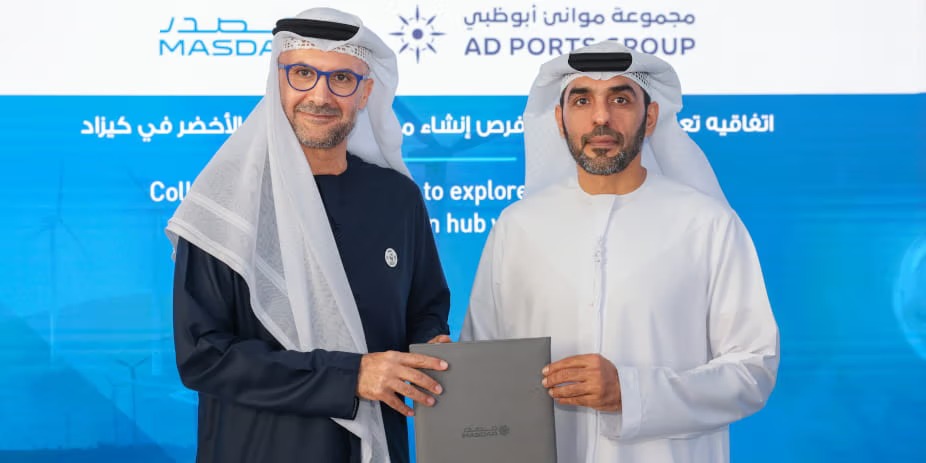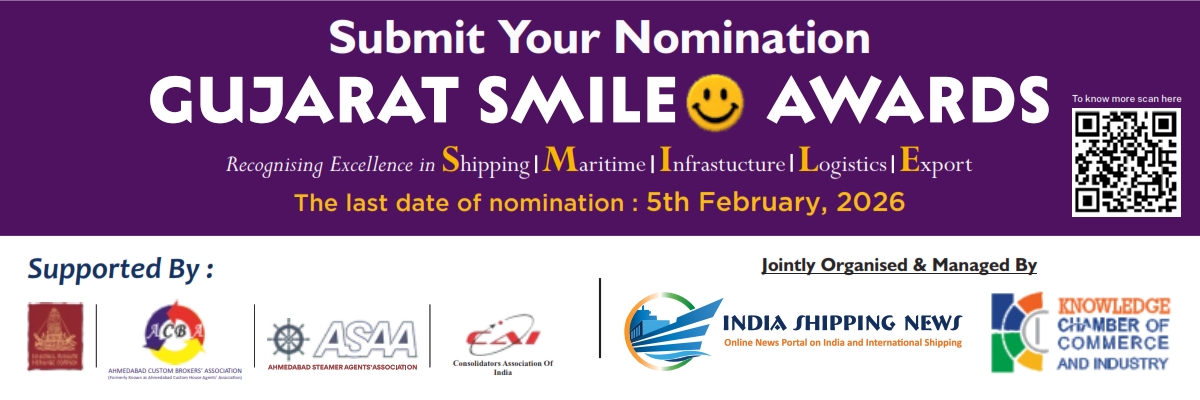
AD Ports and Masdar to explore development of green hydrogen hub within KEZAD
ABU DHABI : AD Ports Group and Abu Dhabi Future Energy Company PJSC – Masdar, the UAE’s clean energy powerhouse, have announced the signing of a Memorandum of Understanding (MoU) on the sidelines of the UN Climate Change Conference, COP28, in Dubai.
Under the terms of the agreement, AD Ports and Masdar will jointly explore the development of a green hydrogen production hub within the Khalifa Economic Zones Abu Dhabi (KEZAD) that will serve both domestic and export markets, part of the UAE’s National Hydrogen Strategy that aims to scale up local hydrogen production to 1.4 million tons per annum by 2031, and 15 million tons per annum by 2050.
In support of this strategy, Masdar is targeting an annual global green hydrogen production capacity of up to 1 million tons by 2030 and has signed and executed several global collaboration agreements to meet this goal.
Hydrogen could help to reduce global emissions by more than 20% by 2050 with demand rapidly increasing in recent years, according to a statement.
This hydrogen production hub could include export terminals of green products to overseas ports, which would attract more investments into the green hydrogen value chain in Abu Dhabi, as well as offer current and future KEZAD and Khalifa Port tenants the opportunity to develop green industries.
Captain Mohamed Juma Al Shamisi, Managing Director and Group CEO of AD Ports Group, said the MoU “aligns perfectly with our green H2 valley strategy, amplifying our efforts to create a robust UAE H2 platform for developing green and blue hydrogen projects both domestically and globally.”
Mohamed Jameel Al Ramahi, CEO of Masdar, commented, “Green hydrogen has enormous potential to decarbonise hard-to-abate sectors and accelerate the journey to net zero. Given more than 80% of global trade is transported by sea, partnerships like this are vital to ensure integrated green hydrogen value chains. Working with AD Ports Group, we’ll explore measures to further decarbonize hard-to-abate sectors by encouraging the use of green hydrogen in port operations and as vessel fuels, while facilitating the import and export of hydrogen.”

